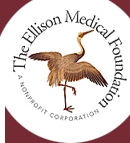 |
||||||
 |
||
 Joshua Lederberg, Ph. D.Joshua Lederberg is President-Emeritus and Sackler Foundation Scholar at The Rockefeller University, New York. He was educated in New York at Stuyvesant High School and Columbia College. After a period of study at Columbia P&S Medical School, he received his Ph.D. in microbiology at Yale. Then he served as professor of genetics at the University of Wisconsin, and on to Stanford School of Medicine, before coming to the Rockefeller in 1978. His life long research, for which he received the Nobel Prize in 1958 (at the age of 33), has been in genetic structure and function in microorganisms. He has long had a keen interest in international health, and has served for many years on WHO's Advisory Council on Health Research, and has chaired the President's Cancer Panel. He has also been a consultant to the pharmaceutical industry, and was "present at the creation" of modern biotechnology. In 1989 he received the National Medal of Science, which made a particular citation to his service as a consultant to government and to industry. Joshua Lederberg, Ph. D.Joshua Lederberg is President-Emeritus and Sackler Foundation Scholar at The Rockefeller University, New York. He was educated in New York at Stuyvesant High School and Columbia College. After a period of study at Columbia P&S Medical School, he received his Ph.D. in microbiology at Yale. Then he served as professor of genetics at the University of Wisconsin, and on to Stanford School of Medicine, before coming to the Rockefeller in 1978. His life long research, for which he received the Nobel Prize in 1958 (at the age of 33), has been in genetic structure and function in microorganisms. He has long had a keen interest in international health, and has served for many years on WHO's Advisory Council on Health Research, and has chaired the President's Cancer Panel. He has also been a consultant to the pharmaceutical industry, and was "present at the creation" of modern biotechnology. In 1989 he received the National Medal of Science, which made a particular citation to his service as a consultant to government and to industry.
In the policy sphere, he is most actively engaged in the building of international collaboration and collective defenses against emerging infections of global impact, and especially against the malicious diversion of biomedical knowledge into biological warfare. From 1978 to 1990, he served as President of the Rockefeller University. As Professor-Emeritus and Scholar of the Sackler Foundation, he continues his research activities there in the field of molecular genetics of bacteria. His laboratory and technical background has also embraced the biological mechanisms of immunity, exobiology (search for extraterrestrial life), and the enhancement of human creativity with computer support (knowledge-based systems).
For detailed resumes, bibliographies, texts of published articles, and extensive archival material, consult the National Library of Medicine website: National Library of Medicine |
||




